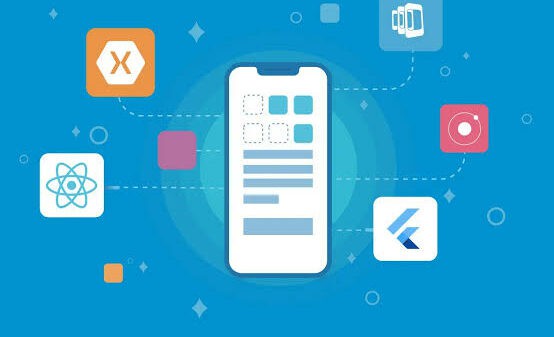With constantly evolving technology and increasing smartphone usage, people are becoming smarter, and they want everything just by accessing an application on mobile phones. To build high-end mobile applications, you need skilled developers who are well-versed in different programming languages.
Stepping into the world of app development is a sure-shot advantageous decision for your business when 90% of mobile time is spent on apps only. All you need to do is pick the right programming languages dominating the industry with their presence.
You might know everything about mobile app development, but your job is still unfinished if you’re not aware of the popular programming languages for mobile app development. Thus, I decided to list the most popular programming languages to use in 2022 to develop a successful mobile app.
Top 7 Popular Programming Languages in 2022 for Mobile App Development
I have conducted in-depth research and prepared a list of the 7 best programming languages to choose from in 2022 for your mobile app development. Let me walk you through them.
JavaScript (React Native)
React Native is an open-source JavaScript-based framework developed by Facebook, used to develop mobile apps for both iOS and Android. Being known as a preferable cross-platform solution, JavaScript is a programming language that offers reusability of code for creating Android and iOS apps, respectively.
JavaScript is the most commonly used programming language on earth and is also known as the backbone of mobile app languages. As per the data, there were 12.7 million active JavaScript developers in the world as of 2021.
Pros of JavaScript (React Native):
- An open-source framework.
- Helps in building faster and inexpensive apps.
- Saves time and coding overheads.
- Reusability of code.
- Easy to learn.
- Easily integrated with other languages.
- Accessible for a large community of developers.
Cons of JavaScript (React Native):
- Compromises data security.
- Some functions don’t work on older browsers.
- Lack of debugging facility.
- Supports only single inheritance.
- Sluggish bitwise function.
- Rendering can be stopped even by a single code error.
Java (Android)
Java is one of the most sought-after programming languages in the world of mobile app development. It is considered to be the most prominent and highly employed programming language for Android app development. Java utilizes JVM that works smoothly in every system.
As per VersionEye, which tracks the open-source software libraries, Java holds the most completed open-source projects by developers. Based on the data, the total number of Java developers globally was 7.1 million as of 2018.
Pros of Java (Android):
- Has efficient open-source development tools.
- Easy to learn and understand.
- Works smoothly in every system.
- Backs the huge and vibrant user community.
- Flexibility, versatility, portability, and platform independence.
Cons of Java (Android):
- Memory management is expensive.
- Performance issues.
- Higher costs.
- No support for low-level programming.
- Lacks templates, which can hinder the development of high-quality data structures.
Kotlin (Android)
Being a statically typed programming language, Kotlin was developed to overrule Java’s shortcomings in developing Android apps. Kotlin is used to make more efficient and high-performance apps. The modern features of the Kotlin language allow developers to focus more on expressing their ideas instead of writing mediocre code that doesn’t live up to their expectations.
Even though Kotlin is relatively new, it is evolving fast. The number of Kotlin developers in the world was estimated to be 1.4 million in 2018.
Pros of Kotlin (Android):
- Has clean syntax and simple code.
- Easy code requires easy maintenance.
- Eliminates null references.
- Generates compact and cleaner code as compared to Java.
- Writes cleaner and less code for the same functionality in Java.
Cons of Kotlin (Android):
- Fluctuating compilation speed.
- Limited learning resources.
- Still different from Java.
Swift (iOS)
Swift is a powerful programming language for iOS app development, introduced by Apple in 2014. Along with mobile apps, it also serves for macOS, tvOS, watchOS, and others. Swift is a great choice for building high-performance iOS apps. Developers find writing in Swift language interactive as it enables them to write cleaner code and offers expressive syntax.
Swift is also a young but promising iOS programming language, growing at a higher pace, and is surely the future of iOS app development.
Pros of Swift (iOS):
- An open-source language.
- Offers interactive code, expressive syntax, and safe design.
- Modern, fast, and powerful.
- Easy to read codes.
- The code written in Swift runs lightning-fast.
- Offers multiple features to add seamless design to apps.
Cons of Swift (iOS):
- Its regular updates make it unstable.
- Poor interoperability with third-party tools and IDEs.
- Lacks support for earlier iOS versions.
Objective-C (iOS)
Before Apple launched Swift, Objective-C dominated the iOS app development industry. Being the basic language of iOS mobile apps, Objective-C is an object-oriented and general-purpose programming language. It provides object-oriented performance, an active runtime, acquires the syntax, flow control statements, and more.
The best thing about Object-C language is that developers can use C and C++ while using this language, which is missing in Swift. Even though Swift has overtaken Objective-C, many people still use Objective-C.
Pros of Objective-C (iOS):
- A well-tested, basic language.
- Provides object-oriented performance and an active runtime.
- Objective-C is more stable than Swift.
- Easier usage of private APIs.
- Objective-C adds language-level support.
- Compatible with C and C++ language.
Cons of Objective-C (iOS):
- Has a steep learning curve.
- Comes with limited functionality.
- Carries more security issues.
C# Language
C#, pronounced as C-sharp, is another higher-level, object-oriented language based on the C programming language widely used for mobile app development. Cross-platform development is another attribute of C#, which makes it suitable for app development. Mainly used for developing native apps for Microsoft platforms, it can also be used to build native iOS and Android apps.
Pros of C# Language:
- Its similar syntax gives developers easy learning.
- Integration with the .NET library.
- Pointer types are not permitted.
- Integrates well with Windows with no special configurations.
Cons of C# Language:
- Allows pointers in unsafe blocks.
- Code compilation issues.
- Microsoft stopped supporting. NET.
C/C++
C/C++is considered being an upstanding choice when it comes to Android app development. The syntactical analogy with C# and C makes C++ a good option. Being one of the popular programming languages, it has developed some of the most powerful tools like Photoshop, World of Warcraft, Google chrome, and PayPal.
Pros of C/C++:
- Exceptionally fast and efficient native code.
- Gives an easy way to access the hardware.
- A vast and rich ecosystem of libraries and tools.
- Variety of data types and powerful operators.
- A vast and knowledgeable community of users.
Cons of C/C++:
- No runtime checking in language.
- Crude and primitive language that lacks a safety net.
- C++ is horrendously large, complex, and complicated.
Key Takeaway: Now, you’ve plenty of options to choose the programming language for mobile app development. I recommend you to choose your language wisely based on the field you want to get into.
What do you think is the best programming language for building mobile apps? Share your thoughts with us!
Tony is an app developer with in-depth expertise in the app development process. He knows how to bring app ideas into reality with flawless UI/UX and keeps himself updated with the ongoing app trends.

























































































































































































